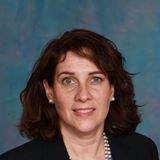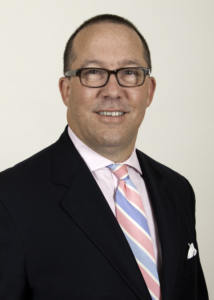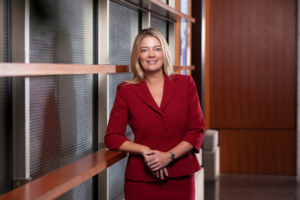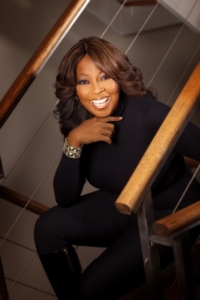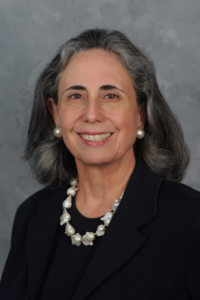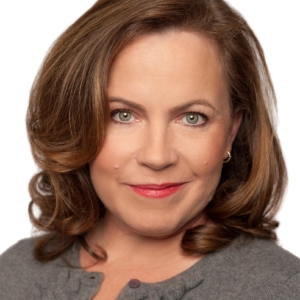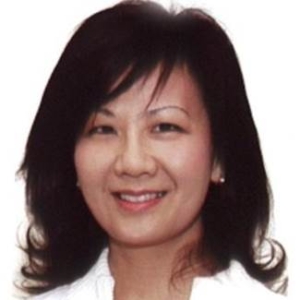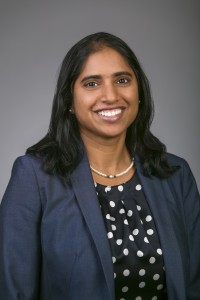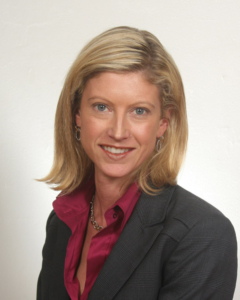 “The notion of ‘career’ has such a different meaning these days than it used to,” reflects PwC’s Lauren Koopman. “You ask yourself what you are going to be when you grow up, but when I think back, I couldn’t even have named it because it didn’t exist. To get the most out of your career, you have to be very fluid and realize how much change there will be over the course of your life. Don’t feel like you’re hemmed into something and just have to make the best of it.”
“The notion of ‘career’ has such a different meaning these days than it used to,” reflects PwC’s Lauren Koopman. “You ask yourself what you are going to be when you grow up, but when I think back, I couldn’t even have named it because it didn’t exist. To get the most out of your career, you have to be very fluid and realize how much change there will be over the course of your life. Don’t feel like you’re hemmed into something and just have to make the best of it.”
Koopman’s observations come from her own career trajectory, including the initial impression that she was going to be in derivatives the rest of her life, and it was just a matter of deciding for which company. But traveling the world allowed her to figure out the new, rewarding career path that she travels today.
Detour Through Wall Street on the Path to Sustainability
Koopman’s first professional position was as a management consultant and manager of e-business during the dot com craze, where her charge was to work with large banks to help them define their internet strategy — helping them switch from “brick to click” as it is commonly known.
That was her first realization that you can’t plan your career too meticulously based on the information you have. “When I was going to school, there was no internet, and then all of a sudden, I was the manager of e-business. The world is morphing so quickly, there’s really no way to look out five to 10 years to identify what you are going to do.”
She decided to return to school to earn her MBA in finance, and there she became intrigued by the complexity of derivatives, realizing that if she could master a technical skill like that it would serve her well. She was subsequently hired by Deutsche Bank and worked on the Wall Street trading floor, which was literally all men. “They used to call the woman’s bathroom ‘Lauren’s room,’” she laughs.
Koopman describes an intense environment that would begin at 7 a.m. when she would familiarize herself with overnight action in Asia and Europe, and then begin monitoring four computer screens and six phone lines.
For five years she worked on the floor, until her new husband, who had just sold his business, asked if she could make it work to travel with him. “I had always wanted to travel around the world so I took a year off and we created our “BC” (Before Child) trip, where we tackled all the harder places to travel, such as India, Beirut, Syria, China, East Asia, the Arctic Circle and Africa.
“It was the best decision I ever made; completely game changing for me,” Koopman recalls. “After seeing firsthand the real issues in the world that people were experiencing, I decided I needed to do something to make a difference.”
Combining her finance background with a second master’s degree, this time in environmental engineering, she began investigating potential options where she could make the biggest impact. She approached it with strategic analysis, creating a database of more than 100 people to speak with at foundations, banks, corporations and consulting firms.
At the time, PwC US was just starting its sustainability practice, and she jumped at the opportunity to build it out and wield true influence, a positon she has held for five years. In fact, she cites her professional role model as the person who hired her, who had the foresight to understand the business benefits of sustainability and the inspiration to build it out.
Though she describes her current position as a complete career shift, she is able to rely on her deep insight in the financial world by focusing on financial service clients. “They appreciate that I am able to speak their language,” she says, adding that even three years ago most of the companies hadn’t even thought about incorporating a sustainability mindset into their investment decisions. “I am proud of how much we’ve done and I am excited to expand our work into asset management and other asset classes.”
Koopman was also recently appointed to the World Economic Forum (WEF)’s Young Global Leaders (YGL) forum, a group selected from around the world to form a next generation leadership network to engage in global affairs. The honor recognizes outstanding and proven young leaders under the age of 40 across business, government, and arts and culture, for their accomplishments, commitment to society and potential to contribute to shaping a better future. Previous and current YGLs include Facebook CEO Mark Zuckerberg, Google Co-founder Larry Page, and Statistician Nate Silver.
Lessons Learned Along the Way
As Koopman has navigated her career, she’s learned the importance of reading people. “I had always assumed people at the top knew everything and were always right, but over the years I’ve figured out that people are people. You have to learn to evaluate your audience and understand where they’re coming from and how to speak to what they need,” she says, adding that understanding people and how an organization works is as important as technical knowledge. “Think about who you’re talking to and their needs.”
She also has seen the value of taking on every opportunity that’s presented without immediately worrying about why it wouldn’t work. “We tend to worry about failure and stay in our comfort zone,” she says. “But there’s so much value in taking on those new opportunities. Even if it‘s something that you don’t think you want to do, inherently you are learning so much from new skill sets and new people. This creates a knowledge and network reservoir you will draw on throughout your career.”
She cites learning by simply paying attention and absorbing as critical, for example times when she has watched CEOs sell an idea to a huge group of people. Koopman also pays credit to the mentors and colleagues she has met through participating in Women in Wall Street.
A Traveling Family
Koopman is quick to point to her supportive, “amazing” husband as one of her inspirations. With a two-and-a-half-year old and a six-month-old, her home life is as busy as her office. And, even though their life-changing trip was designed to hold them over until their children were a little older, they already have robust passports: the little travelers have visited Holland, Canada, Colombia and the west coast of America, along with regular trips to her husband’s family in New Zealand.
PwC US? Or globally?
By Cathie Ericson

